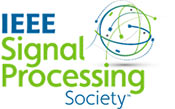IEEE Signal Processing Cup 2023
Psychosis Classification Challenge
Details of a challenging problem
Schizophrenia and bipolar disorder are among the top 20 leading causes of disability, demanding timely, accurate diagnosis to select the optimal treatment and reduce the overall burden of the disease. However, the misdiagnosis rate of current diagnostic procedures is high. The misdiagnosis rate for bipolar and schizophrenia was reported to be over 50%, and the misdiagnosis between these two disorders is between 15~30%. This high misdiagnosis rate is rooted in the descriptive, symptom-based nature of current diagnostics, which do not use objective biomarkers. For example, the current state of the disease and the patient's subjective insight into their symptoms are major determinants of the diagnosis, which can be misleading. Individuals' subjective opinions of their symptoms can be convoluted and influenced by the subject current and past disorder status. Symptoms are also not always uniform for the same disorder, and there is heuristic biases toward specific symptoms, which can result in misdiagnosis. In addition, substantial heterogeneity and symptom overlap across diagnostic categories have encumbered the accurate, timely classification and led to a considerable debate about the degree to which current clinical assessments can differentiate between diagnostic groups.
It is increasingly recognized that biomarkers that reflect underlying neurobiological mechanisms can improve early, accurate diagnosis. Psychosis-related aberrations mainly appear during the neurodevelopmental phase or at the early psychosis stage, with little or subtle brain changes during the rest of the lifespan. This can facilitate the optimal treatment to reduce suicide risk, significant side effects of medication, and the overall burden of the disease. Such biomarkers can be achieved by leveraging resting-state functional magnetic resonance imaging (rsfMRI), which provides noninvasive and indirect measurements of neuronal activities. This competition aims to evaluate the ability rsfMRI to develop valid neuroimaging diagnostic tools to differentiate schizophrenia (SZ) and bipolar psychosis (BPP) using a large dataset of individuals with fully developed symptoms that allowed near to perfect classification using DSM criteria.
Competition details and data sets will be announced soon.
Eligibility
Any team composed of one faculty member, at most one graduate student and 3 to 10 undergraduate students is welcomed to join the open competition. At least 3 students must be IEEE Student Members. Please see the official document for full eligibility details.
Dataset
A dataset will be available soon.
Prize
The three teams with highest performance in the open competition will be selected as finalists and will be invited to participate in the final competition at ICASSP 2023. The champion team will receive a grand prize of $5,000. The first and the second runner-up will receive a prize of $2,500 and $1,500, respectively, in addition to travel grants and complimentary conference registrations.
Important Dates
- Dataset available
- Final submission due: 17 March 2023
- Finalists announced: 31 March 2023
- June 4-10, 2023: Final competition at ICASSP 2023
Register
>>> Register for the IEEE SP Cup 2023 at ICASSP 2023
Finalist Teams
|
GRAND PRIZE - Team: "Neuro FEEIT" |
|
FIRST RUNNER-UP - Team: "Brainiac" |
|
SECOND RUNNER-UP - Team: "SIPL" |
Organizers
The challenge is organized by the Brain Space Initiative (BSI). More information also on Kaggle.
Sponsors
This competition is sponsored by the IEEE Signal Processing Society and MathWorks:




